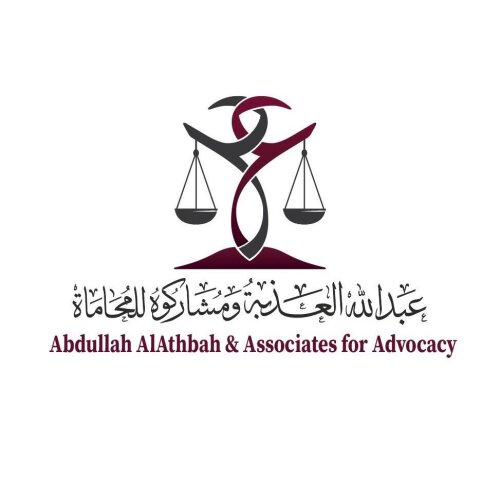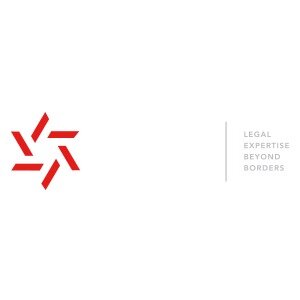Best Banking & Finance Lawyers in Qatar
Share your needs with us, get contacted by law firms.
Free. Takes 2 min.
Or refine your search by selecting a city:
List of the best lawyers in Qatar
About Banking & Finance Law in Qatar
Banking and finance law in Qatar encompasses a wide array of regulations that govern financial institutions, commercial transactions, and investment in the nation. As a rapidly developing financial hub in the Middle East, Qatar's banking and finance sector is supported by a robust legal framework designed to enhance the country's economic growth and stability. Key regulatory bodies such as the Qatar Central Bank (QCB) and Qatar Financial Markets Authority (QFMA) play pivotal roles in overseeing activities and ensuring compliance within the industry. The legal landscape here is influenced by both local legislation and international practices, offering a structured environment for financial operations.
Why You May Need a Lawyer
Seeking legal advice in the field of banking and finance can be crucial for various reasons. Whether you are an investor, business owner, or an individual consumer, legal guidance can help navigate complex financial regulations and protect your interests. Common situations where you may require legal assistance include:
- Negotiating and drafting contracts for loans or financial services.
- Understanding compliance with regulatory requirements for financial transactions.
- Resolving disputes with financial institutions or within financial agreements.
- Structuring complex financial deals or investments.
- Navigating mergers and acquisitions involving financial entities.
- Protecting against fraud and financial misconduct.
Local Laws Overview
Qatar's banking and finance law is characterized by several key legal statutes and regulations. Understanding these can be crucial for operating within the sector:
- Qatar Central Bank Law: Governs the regulation of monetary and financial policy in Qatar, ensuring stability and growth.
- Qatar Financial Markets Authority (QFMA) Regulations: Oversees capital markets and ensures fair trading practices.
- Anti-Money Laundering/Combating the Financing of Terrorism (AML/CFT) Regulations: Qatar places strong emphasis on combating financial crimes with stringent AML/CFT laws.
- Foreign Investment Law: Outlines the guidelines for foreign investments in financial sectors, allowing foreign investors to participate in Qatar's growth.
Frequently Asked Questions
What is the role of the Qatar Central Bank?
The Qatar Central Bank (QCB) regulates monetary policy, oversees financial institutions, issues currency, and ensures the financial stability of the country's banking system.
How do I know if a financial institution is licensed in Qatar?
You can verify the licensing of a financial institution by checking with the Qatar Central Bank or the Qatar Financial Markets Authority, which provide lists of authorized institutions.
What are the requirements for foreign investors in Qatar’s banking sector?
Foreign investors must comply with the Foreign Investment Law, which may require partnerships with local entities and compliance with regulatory standards set by QCB and QFMA.
Are there restrictions on the types of banking services available to non-residents?
Non-residents may face restrictions on certain banking services. It's advisable to consult with local banks for specific offerings and regulatory requirements.
How does Qatar handle anti-money laundering efforts?
Qatar enforces strict AML/CFT regulations, requiring financial institutions to implement measures such as customer due diligence and reporting suspicious activities to authorities.
What should I do if I suspect financial misconduct?
If you suspect financial misconduct, you should report it to the relevant authorities such as the Qatar Central Bank, Qatar Financial Markets Authority, or law enforcement agencies.
How are financial disputes resolved in Qatar?
Financial disputes can be resolved through various mechanisms including negotiation, arbitration, or litigation, often involving specialized legal counsel.
What is the policy on loan collection practices in Qatar?
Loan collection practices must adhere to ethical standards and legal requirements, protecting consumers from harassment and unfair practices.
Can Islamic banking facilities be availed in Qatar?
Yes, Qatar offers a comprehensive range of Islamic banking services, compliant with Sharia law, through various banks across the nation.
What are the legal requirements for setting up a financial company in Qatar?
Setting up a financial company involves obtaining the necessary licenses from the QCB, complying with regulatory standards, and ensuring adequate capitalization.
Additional Resources
Several resources can be helpful for anyone seeking legal advice in the banking and finance sector in Qatar:
- Qatar Central Bank (regulatory guidelines and corporate governance frameworks)
- Qatar Financial Markets Authority (capital market regulations and investor guidelines)
- Qatar Chamber of Commerce (networking and investment opportunities)
- Qatar Financial Centre (business setup and legal compliance support)
Next Steps
If you need legal assistance in the field of banking and finance in Qatar, consider the following steps:
- Identify your specific legal needs and clarify your objectives.
- Research and select a qualified lawyer or legal firm specializing in banking and finance law.
- Prepare relevant documentation and records pertinent to your case or inquiry.
- Schedule a consultation to discuss your situation and receive tailored legal advice.
- Evaluate the guidance received and determine your course of action, which may involve further legal negotiations, regulatory compliance, or dispute resolution.
Lawzana helps you find the best lawyers and law firms in Qatar through a curated and pre-screened list of qualified legal professionals. Our platform offers rankings and detailed profiles of attorneys and law firms, allowing you to compare based on practice areas, including Banking & Finance, experience, and client feedback.
Each profile includes a description of the firm's areas of practice, client reviews, team members and partners, year of establishment, spoken languages, office locations, contact information, social media presence, and any published articles or resources. Most firms on our platform speak English and are experienced in both local and international legal matters.
Get a quote from top-rated law firms in Qatar — quickly, securely, and without unnecessary hassle.
Disclaimer:
The information provided on this page is for general informational purposes only and does not constitute legal advice. While we strive to ensure the accuracy and relevance of the content, legal information may change over time, and interpretations of the law can vary. You should always consult with a qualified legal professional for advice specific to your situation.
We disclaim all liability for actions taken or not taken based on the content of this page. If you believe any information is incorrect or outdated, please contact us, and we will review and update it where appropriate.
Browse banking & finance law firms by service in Qatar
Qatar Attorneys in related practice areas.
Browse banking & finance law firms by city in Qatar
Refine your search by selecting a city.
















